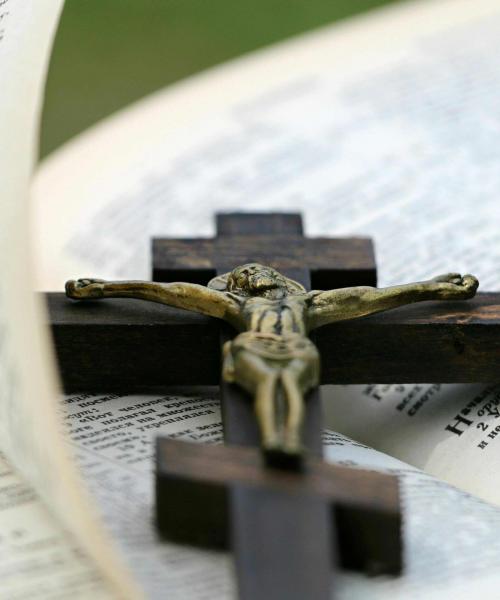
Sabath as celebration
It is the crowning moment of the Creation story.
Six days of glorious creativity. Six days to establish the known (and the unknown) – to lay down the foundation for all that will follow. And on the seventh day. Having declared the job done and the product ‘very good,’ God rests.
As I mentioned last Sunday, it is from this very useful idea that a whole bunch of other ideas (of questionable usefulness) have been proposed. Some of our most treasured traditions, coming from our most revered ancestors in the faith, have built a Christian culture of ‘thou-shalt-not.’
God is reported to have ‘rested.’ From this day of rest there comes a demand (or at least, the encouragement) to take some time off ourselves. Regularly, intentionally, we are asked to pause, reflect, and remember that we might be restored in the process.
It’s not hard to accept this as a good idea. All around us, people are talking about ‘a good work-life balance.’ Even main-stream, secular culture recognizes the benefit of a little non-productive time now and then.
But a faithful approach – a biblical approach – to this question requires us to ask what is the point? Why is Scripture so insistent? Why were the punishments so extreme?
After a flurry of very intense, very productive, very creative activity, God rested. Not because of exhaustion – can God grow tired? Does the Holy One EVER get weary? – instead, it seems more likely that God stopped to rejoice. To revel in the wonder and goodness and splendour of it all.
The Sabbath is a celebration.
Now I have no direct evidence for my theory. Nowhere in the text does it say anything about Sabbath as a party. I’m reading between the lines.
I’m remembering the endlessly detailed instructions in Exodus and Leviticus and Deuteronomy that describe preparations for Sabbath; the elaborate clothing for the priests. The rituals, painstakingly described. The music. The sacrifices.
I’m remembering the plans that David had, and Solomon realized, for a temple to house those celebrations. The decorations – the dazzlement – the singing and the celebrating.
I’m thinking of the witness of the old testament that introduces us to the historical habit of honouring God at all times, but of really going all out on the Sabbath – not just to honour the day of rest, but to celebrate the wonders of the ongoing creative majesty of God.
The Psalms – while they do have moments that help us express sadness, or anger or frustration – also offer us examples of praise and celebration.
And then, there’s Jesus.
Jesus’ attitude toward the Sabbath is the one that should matter the most (to us.) Many of Jesus’ encounters – with the rich and powerful; with the poor and outcast – take place on the sabbath. He and his disciples are quite often questioned about their disregard for ‘Sabbath rules.’ And most notably, Jesus seems to delight in healing people on the one day that ‘no work should be done.
No less than twelve of Jesus’ ‘healing miracles’ are performed on the Sabbath – a day of rest, mind you, but also - I contend – a day of celebration.
Think back to the Creation account. Something out of nothing, but everything in its place – everything as it should be – and all described as very good. Remember back to our read through Genesis 1 – the litany of praise, day by day (and God saw that it was good) which finishes with the completion – the creation made whole – and the declaration that all of it is Very Good. This is the pattern of praise that we are invited to follow. This is the ancient memory that Jesus would revive in us by granting wholeness and healing to so many on the Sabbath; and ultimately, by opening the door to a new creation by his crucifixion and resurrection.
Sure, I can hear your objections already.
Didn’t Jesus rise on ‘the first day of the week?’ You’re right. He did. The ultimate celebration following the most definitive period of rest. The injunction to do nothing on the Sabbath (which is symbolized by his death) is cast aside by the glory of his rising. A slight shift in our focus – a little juggling of the mathematics of the calendar – these are not the main attraction. We are meant to be drawn into this notion of celebration by the celebratory side of the resurrection – an event that puts Creation back on the path to glory. Seven days work done in three. All of us – indeed, all creation – set right again. The sabbath day – indeed every day – redeemed by the act of God who still proclaims it all VERY GOOD.
No more do we need to split hairs about how far we might walk, or what we can or cannot do; no more debates about whether saving the donkey, or ox, or child who has fallen into a pit would be a forbidden bit of grace. The focus, not just of the Sabbath, but all of our days, is the celebration of wholeness and healing.
A day of rest might help us get there, but we are invited to rejoice in the offer of life abundant that is part of the pattern of creation.
 St. John's
St. John's




